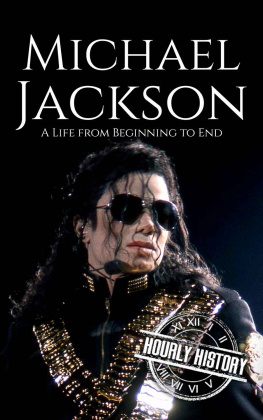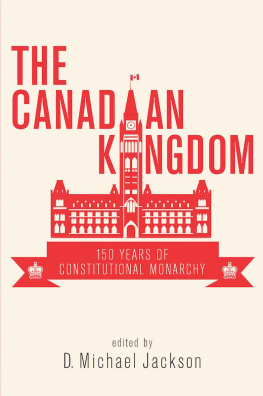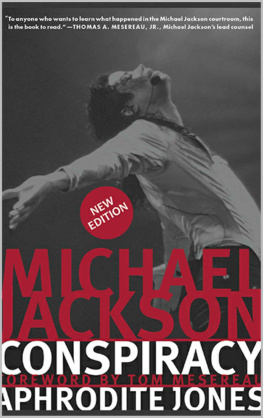Columbia University Press
Publishers Since 1893
New York Chichester, West Sussex
cup.columbia.edu
Copyright 2018 Columbia University Press
All rights reserved
E-ISBN 978-0-231-54644-7
Library of Congress Cataloging-in-Publication Data
Name: Jackson, Michael, 1940 author.
Title: The varieties of temporal experience: travels in philosophical, historical, and ethnographic time / Michael Jackson.
Description: New York: Columbia University Press, [2018] | Includes bibliographical references and index.
Identifiers: LCCN 2017049990 | ISBN 9780231186001 (cloth: alk. paper) | ISBN 9780231186018 (pbk.: alk. paper)
Subjects: LCSH: Time perception. | TimePsychological aspects.
Classification: LCC BF468 .J33 2018 | DDC 153.7/53dc23
LC record available at https://lccn.loc.gov/2017049990
A Columbia University Press E-book.
CUP would be pleased to hear about your reading experience with this e-book at .
Cover design: Lisa Hamm
Cover image: John Bevan Ford, Amokura goes fishing ,
series: Te Aitanga a Kiwa (The Progeny of Kiwa) .
Courtesy of the Ford family / The Trustees of the British Museum.
References to websites (URLs) were accurate at the time of writing.
Neither the author nor Columbia University Press is responsible for URLs that may have expired or changed since the manuscript was prepared.
In 2016 I attended an anthropology conference in the UK to give a plenary address on The Varieties of Temporal Experience. The conference organizers hoped that the themeFootprints and Futures: The Time of Anthropologywould provide a forum for critical reflection on time, temporality and chronicity as these play out in different settings. This hope was realized for me in a way I could not have anticipated. Although I had no personal connection with Northumberland, it was near enough to Yorkshire for me to feel that I had come back to the place my grandfather left 110 years ago, seeing no future for himself in England and taking a chance of a new life in New Zealand.
Fred Longbottom was born in an industrial suburb of Halifax in 1877 and went to work in the mills when he was ten. Only two other kinds of gainful employment were open to himthe army or the police. He joined the West Riding Constabulary only to quit when ordered to baton charge mill workers striking for safer working conditions and better pay. When a friend announced that he was immigrating to New Zealand, Fred followed suit. He arrived in Wellington, New Zealand, in 1906, was persuaded to give policing another go, and spent the rest of his life in a small Taranaki town where he alone could determine how he would do his job. In the years after his retirement in 1943, I became a beneficiary of his stories, absorbing his values and often feeling that I was a child of his times as well as my own. Unlike Alfred Schutz, who writes that the world of predecessors is by definition over and done with and has no open horizon toward the future, I have always felt that my grandfathers world and mine are coterminous and that whatever I do in my life is connected to what he sought to do in his. This feeling that my lifetime overlaps with his may explain why I am drawn to people who work with their hands, why I atavistically affiliate myself with labor rather than capital, and why I believe that sound ethnography is less a matter of philosophical acumen than of social skills in the field and care and craft in writing.
On a walking tour through Durham, my guide was a man who left school at 16 to go down the pit. After the miners strike of 19841985, a series of pit closures put Joe and tens of thousands of other miners out of work. In 1983, Britain had 174 working mines; by 2009 only 6 remained, and Joe did not hesitate to draw comparisons between the blighted economies and depressed mining towns of northeast England and indigenous communities in the Global Southplaces of unemployment, drink, hard drugs, and enduring bitterness against those who had conspired to destroy traditional livelihoods. Joe found a new lease of life by resuming his education and was now researching a PhD in the mining village where he grew up. Im not much good at theory, he told me. Its a bit of a stumbling block, really, because what Im interested in is the experience of these men, from the years they worked in the pits, and the raw deals theyve had in life. I told Joe that if theory (whatever that may be) helps in this task, then well and good; if it doesnt, if it just serves to create an effect or lend authority to ones writing, then to hell with it. Can I quote you on that? Joe asked.
As we continued on our way, I was reflecting on the difficulty of writing narrative prose that, while philosophically engaged, avoided the kinds of alienating abstraction and systematizing that tend to render thought sufficient unto itself.
As if he had read my mind, Joe led me across the road to a pub called the ColePitts whose painted sign depicted a bucolic landscape with a Galloway pony hauling a coal wagon out of a mine and agricultural workers at harvest in an Elysian field. The pub was at the end of a row of houses built for middle-class buyers, and its name had nothing to do with coalpits but derived from the owners surnames. Its typical of how the bourgeoisie fashion their heritage out of images that properly belong to those they oppress and exploit, Joe said. I sometimes think that their power is as hollow as the wealth they hold and hoard and that they must constantly draw on the vitality of the underclass to give it meaning.
I now followed Joe down an alley where you could still see the coalholes, with their wooden shutters, built into the brick walls behind the row houses. Joe explained that the miners would get a free portion of coal, even though it was deducted from their wages, and he imitated the action of a coal man, heaving a sack onto his shoulder from the tray of a truck, and tipping it into the coalhole. I had a sudden flashback to the coal man in my home town, grubby with coal dust, wearing a leather jerkin, and going through the same motions in the shed at my grandparents house, and remembered filling the coal scuttle, lugging it into the kitchen, and setting it down beside the coal range.
Joe described the system that bonded the miners to the mine owners. If you broke your bond and attempted to relocate to a mine where the wages or working conditions were better, the owners could evict you from your house. If you shopped anywhere other than the Tommy shop owned by the mining company, you could be evicted. If you stirred up trouble, youd be evicted, or would have to work for three months without pay. How a miners family survived under these conditions does not bear thinking about. But I was thinking not of debt bondage but of the bonds that connect us to others across space and time, transcending age, gender, history, culture, and even death. As we walked on toward the Miners Hall in North Road, built in the 1870s from pennies donated by the two hundred thousand miners in the Northumberland-Durham area, Joe talked of the double binds that came of trying to improve your lot. If you became an overseer, Joe said, youd be materially better off, but in escaping the twelve-hour shifts at the coalface, you lost the respect of the miners; you were no longer one of them, nor were you any better off in their eyes than the owners whose stooge and instrument you had become. This is what my grandfather experienced when he joined the police force, I thought, and this betrayal of my origins is something I too experience.












